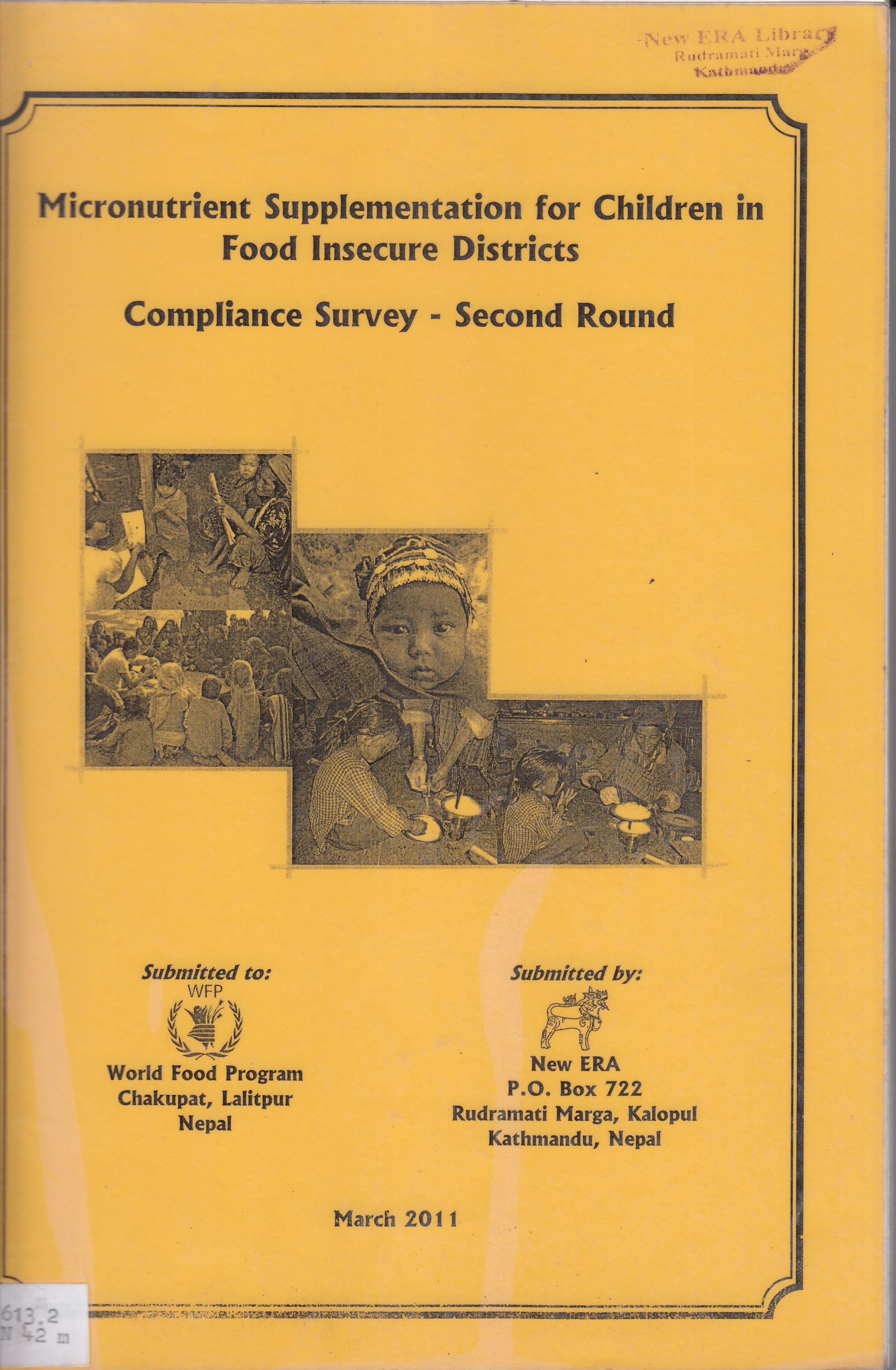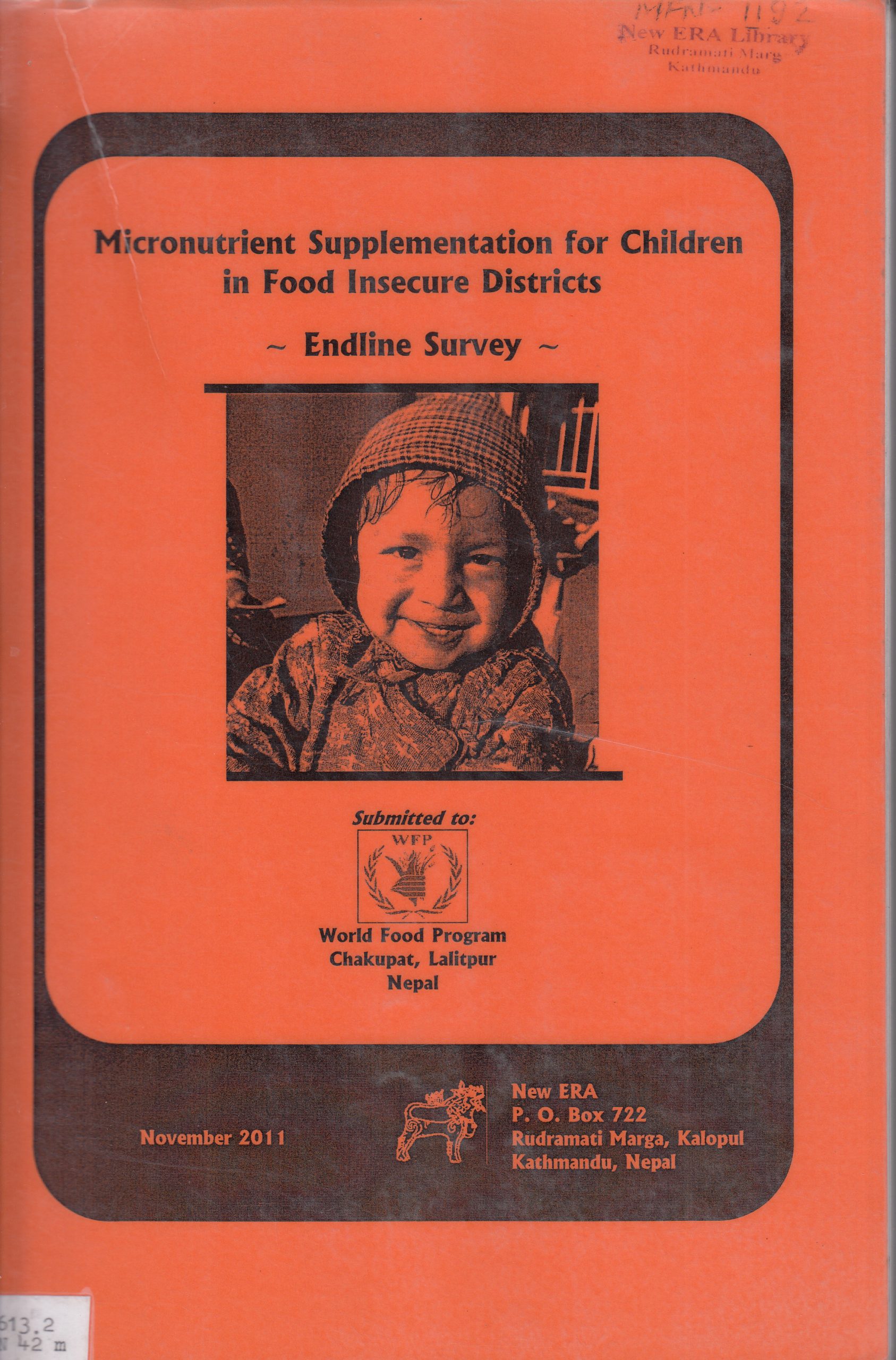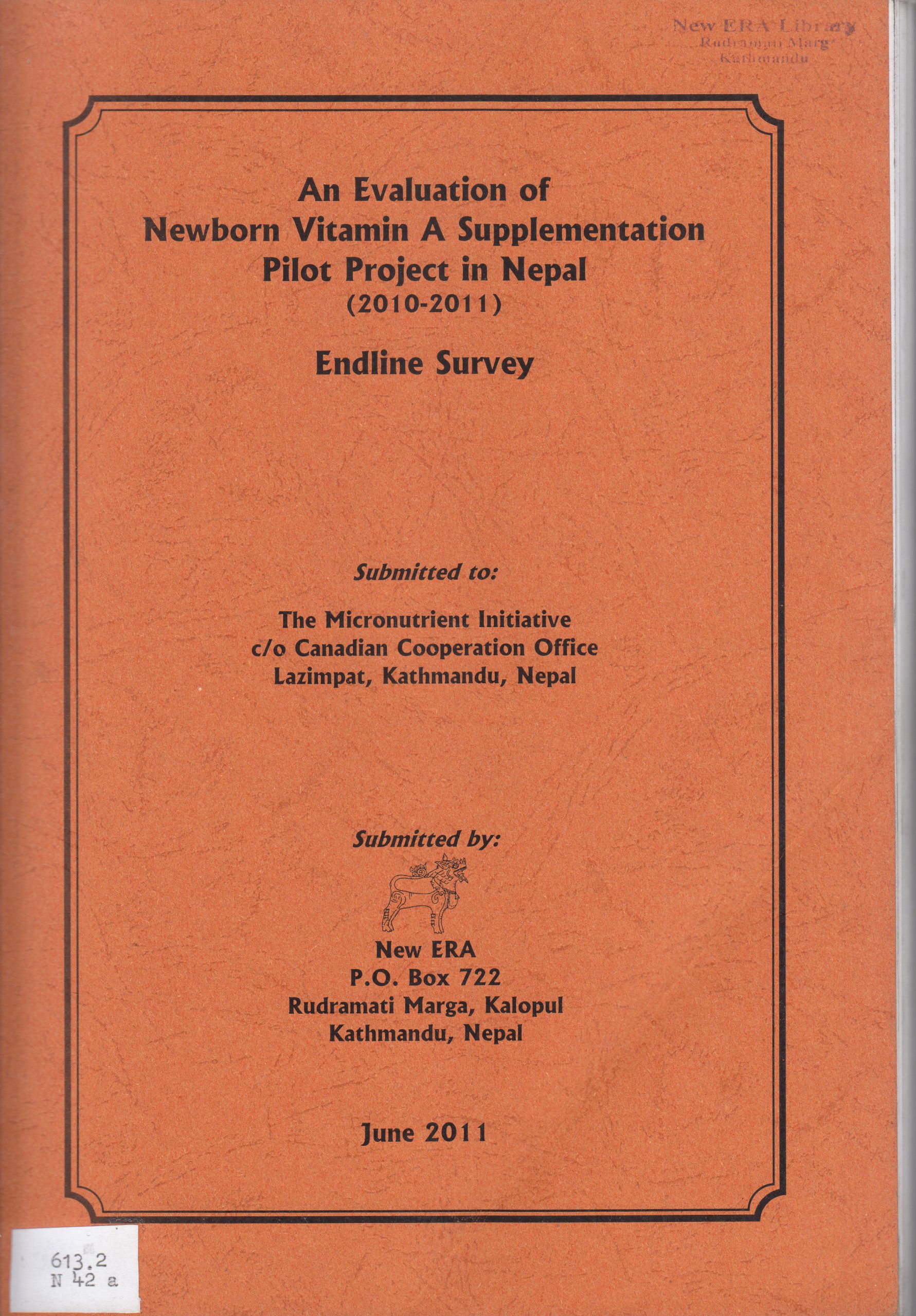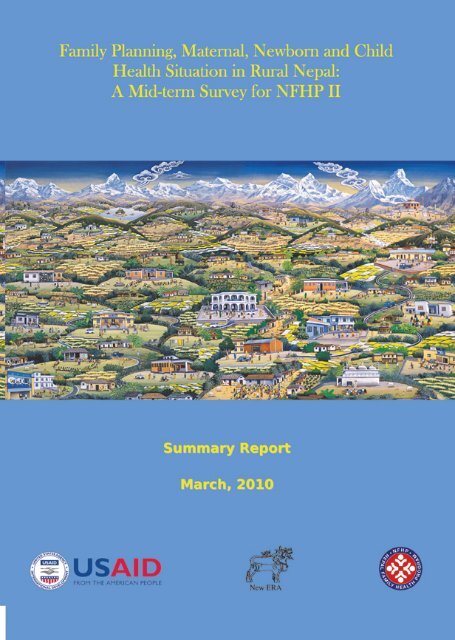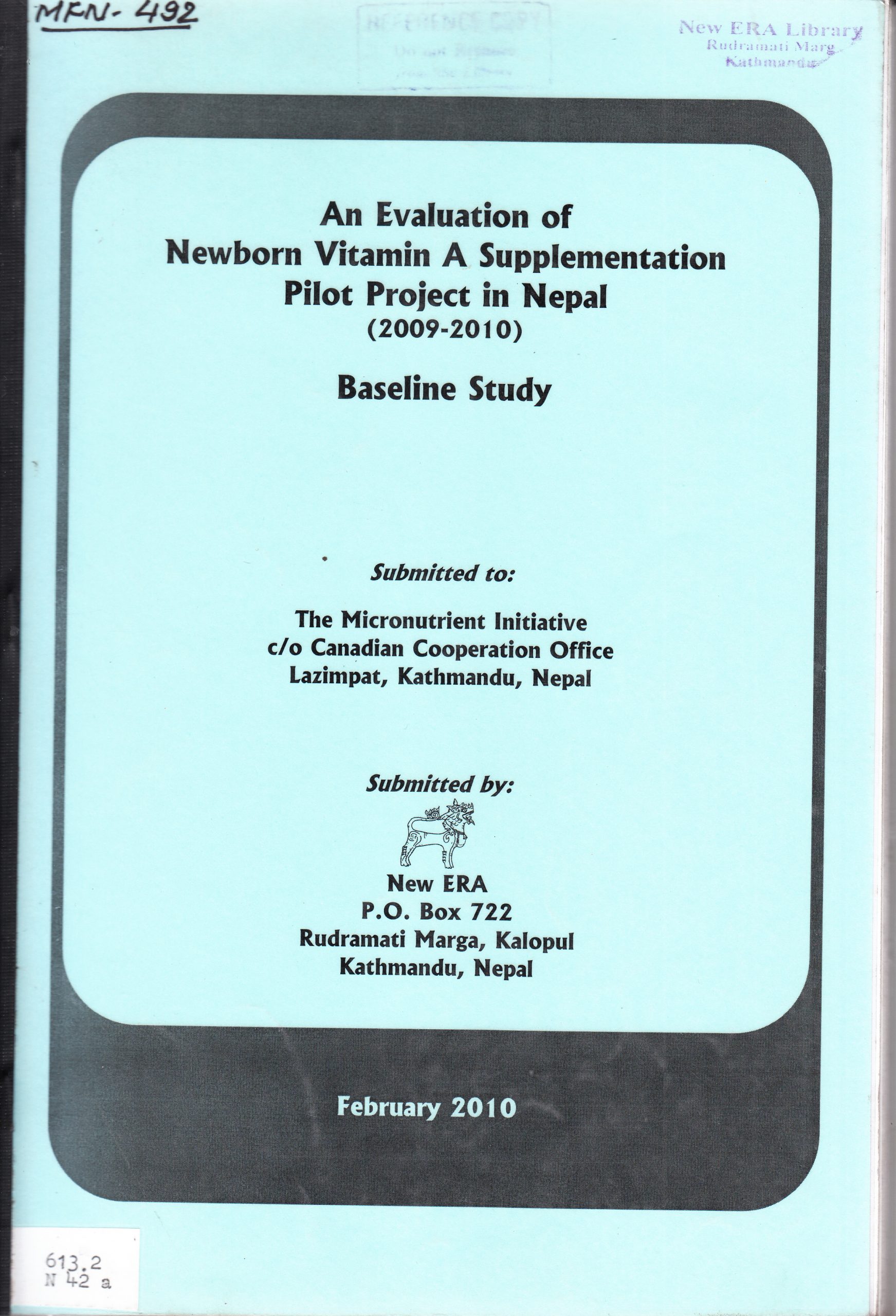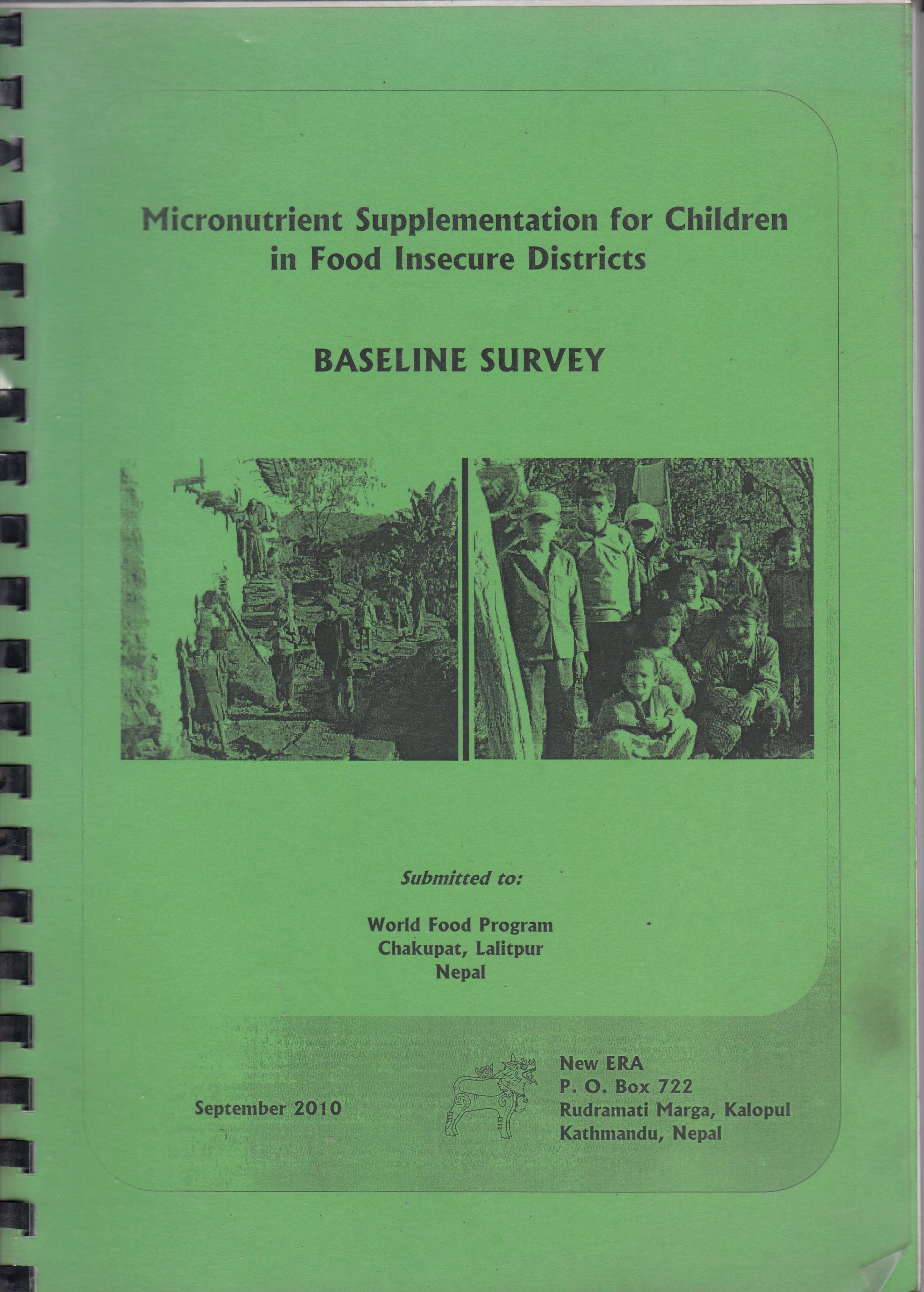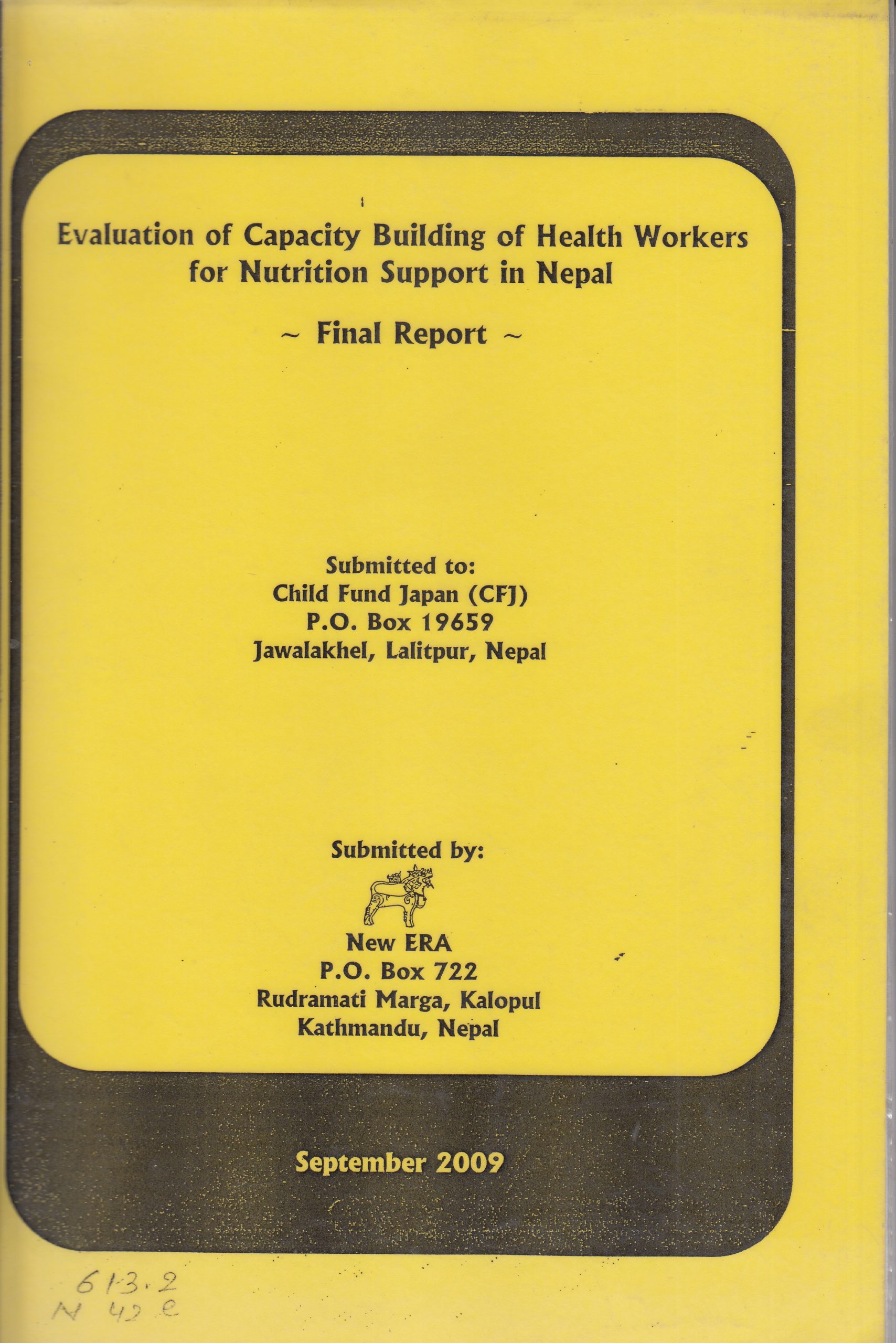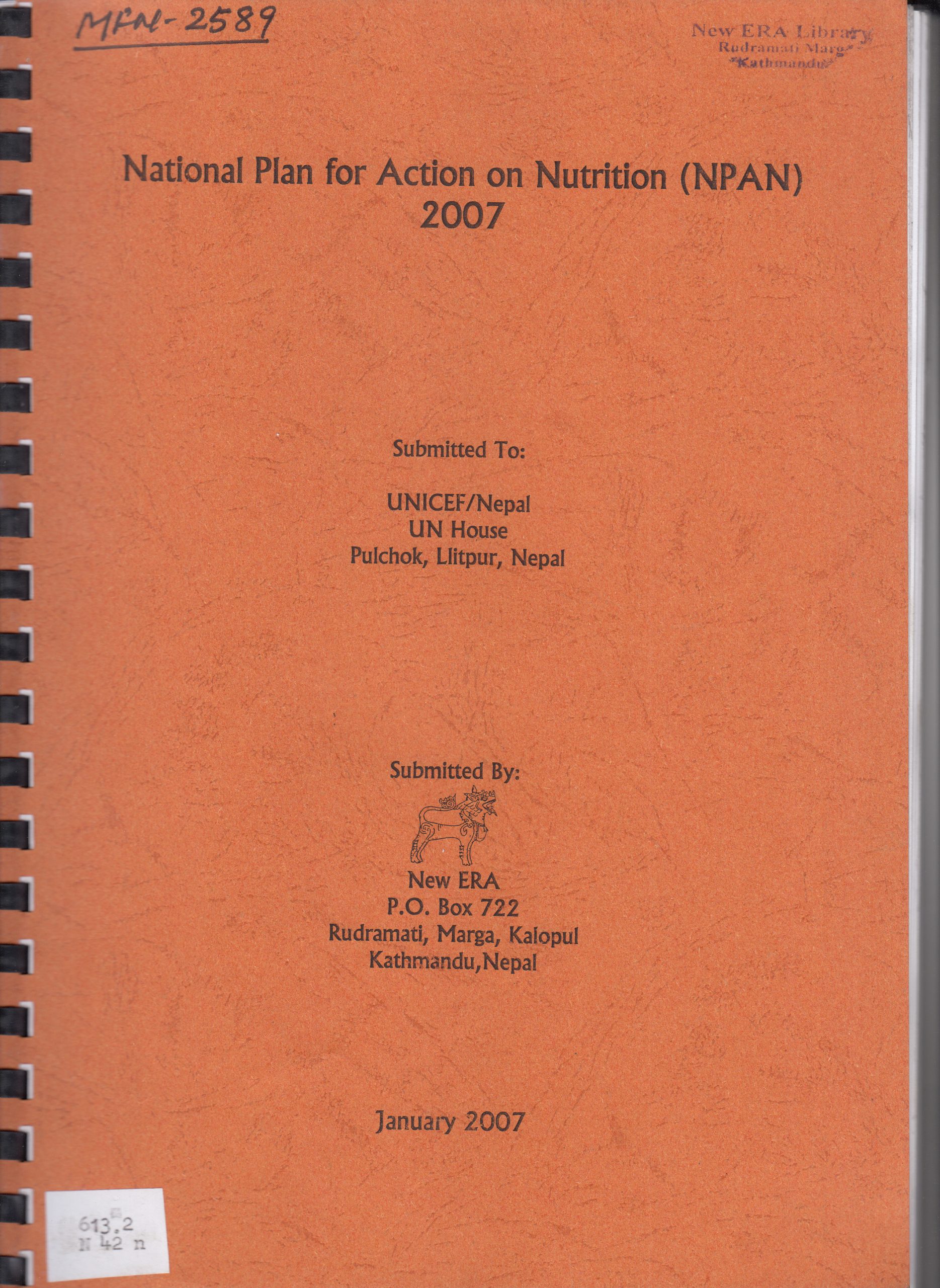Micronutrient Power (MNP) supplementation program interventions included two components: (i) a three month supply of the MNP and (ii) behavior change communication intervention. This compliance survey was undertaken to obtain data on coverage, acceptance and consumption of MNP among the target group. The study also assesses awareness as well as knowledge, attitude and practice (KAP) of mothers on micronutrients. Both the first and second round of the survey was conducted in 14 districts of WFP intervention areas.
Report Type: Nutrition
Micronutrient Supplementation for Children in Food Insecure Districts – End-line Survey
The micronutrient Powder (MNP) supplementation program was implemented WFP together with the Ministry of Health and Population (MOHP) and other agengies in 15 districts of Mid and Far-west Region of Nepal. The main objective of the program was to address the high rates of micronutrient deficiencies in the intervention areas. This survey was conducted to obtain the data on anemia prevalence as an indicator of the program impact. The study was being to measure the nutritional status, particularly anemia levels, parasite infection of children aged 6-59 months. The study also assesses the infant and young child feeding practices and household food security status in the study site.
An Evaluation of Newborn Vitamin A Supplementation Pilot Project in Nepal (2010-2011) – Endline Survey
Newborn Vitamin A Supplementation (NVAS) project was launched by Ministry of Health and Population (MoHP) as a pilot intervention in four districts namely Banke, Nawalparasi, Tanahu and Sindhuli with support from MI, UNICEF and NFHP. The objectives of intervention was to identify and test two feasible models (FCHV dosing and Mother/Family member dosing) to dose newborns with a single oral dose of 50,000 IU vitamin A capsule within 48 hours of birth and to recommend a most cost-effective model for newborn dosing, along with expected coverage and timing, that one can be scaled up to the national level. This study was examined the impact of the NVAS program activities as perceived by the direct beneficiaries after one year in three districts: Banke, Nawalparasi and Tanahun
Family Planning, Maternal, Newborn and Child Health Situation in Rural Nepal: Mid-term Survey of NFHP II
This mid-term survey of Nepal Family Health Program (NFHP) Phase II was envisaged to monitor the progress in the NFHP’s impact and outcome indicators. The study was conducted in 20 NFHP supported districts and 20 control districts, which allowed for assessment of project impact. Baseline information as derived from the 2006 Nepal Demographic and Health Survey was taken into account to enable monitor changes. The current study, therefore, was conducted in 111 clusters overlapping with the 2006 NDHS clusters.
An Evaluation of Newborn Vitamin A Supplementation Pilot Project in Nepal (2009-2010) Baseline Study
Ministry of Health and Population (MoHP) formulated and endorsed a policy on Newborn Vitamin A Supplementation (NVAS) and launched a pilot intervention project in co-operation with UNICEF, Micronutrient Initiative (MI) and NFHP in Nawalparasi and Banke districts of Nepal. MoHP was testing two models as feasible strategies to dose newborns with a vitamin A capsule within a day or two of birth. They are (i) FCHV dosing and (ii) Mother/Family member dosing. This study was to obtain baseline information for the implementation of NVAS program through FCHVs in the project districts. The study attempts to compare the characteristic mainly of service delivery status as well as knowledge, attitude and practice in relation to NVAS of service provider.
Micronutrient Supplementation for Children in Food Insecure Districts – Baseline Survey
Micronutrient Power (MNP) supplementation program was launched WFP together with Ministry of Health and Population (MoHP) in selected districts of Mid and Far-west development regons of Nepal. This study was for document the situation of malnutrition and underlying factors particularly anemia levels among target population in the areas of WFP’s intervention. The study assesses prevalence of anemia and the nutritional status among the target group. The study also examined the knowledge of mothers about infant and young child feeding practices besides assessing household food security.
Evaluation on Capacity Building of Health Workers for Nutrition Support in Nepal
Food Based Approach (FBP) approached project was implemented Nutrition Promotion and Consultancy Service (NPCS) coordination with Ministry of Health and Population, Social Welfare Council JICA with goal to improve the nutrition situation of children and women at community level in eight districts namely Tanahun, Dhading, Makwanpur, Mahottari, Kaski, Parbat, Kapilvastu, and Nawalparasi of Nepal. This study asseses the effectiveness of the project; situation of malnutrition; and sustainability of the project. The study determined ways to improve the project design with special focus on the content and delivery of the FBA.
Evaluation of Intensification of Maternal and Neonatal Micronutrient Program in Nepal
Intensification of Antenatal Iron Supplementation Program was initiated Government of Nepal with support from WHO and Micronutrient (MI) in Nepal. As of the policy, Government was supplying micronutrient supplements to pregnant and lactating women through primary health facilities. There have also been extensive efforts to increase awareness about anemia and iron supplementation during pregnancy through the training of health workers/volunteers at all levels and by distributing IEC materials. This panel survey was carried out annually Evaluation survey 2003, Endline survey 2004, Second Endline 2005, Third Endline 2006 and Fourth Endline survey 2008 from same cluster and same season of the program districts. The study measured the effectiveness, coverage, utilization of antenatal iron and post-partum vitamin A supplements delivered through a community based delivery system of the program. The study assesses the knowledge and practices of health workers in relation to iron supplementation; de-worming; nutrition education.
Nutritional Survey in Bajhang, Mugu & Humla Districts
This study was undertaken by Action Canter la Fa (ACF) with technical support from New ERA in order to follow the evolution of the nutritional status of children and mothers in Humla and Mugu districts. The study assesses the prevalence of malnutrition among children six to 59 months old; level of malnutrition among Dalit children under five; nutritional status of women in the age group 15-49 years; coverage of micronutrients distribution (vitamin A); prevalence of anemia and makes recommendations in terms of program implementation according to the findings.
National Plan for Action on Nutrition (NPAN) 2007
In line with the nutritional target under the Millennium Development Goal, the National Planning Commission decided to formulate a National Plan for Action on Nutrition (NPAN) in order to improve the nutritional status of the children in the country. This study the National Plan for Action on Nutrition (NPAN) was supported by UNICEF/Nepal. New ERA facilitated the process of formulation of the NPAN. The NPAN was developed in close consultation with the stakeholders. The study has developed strategies to improve the nutritional status of children under the age of five years and women of reproductive age.



